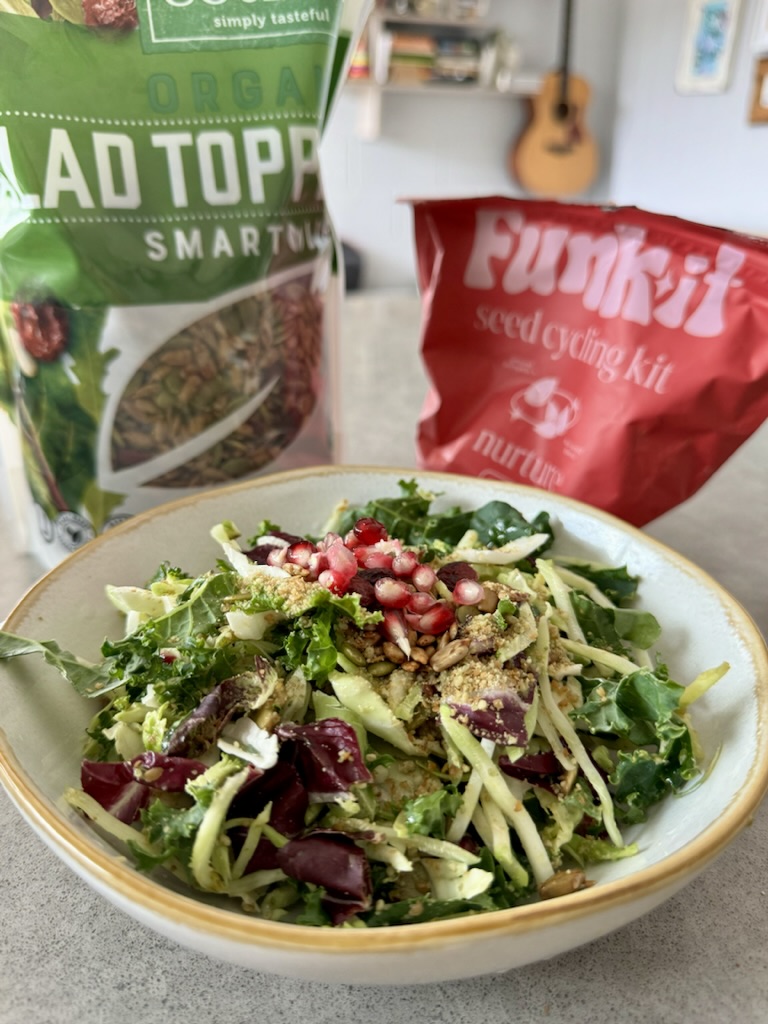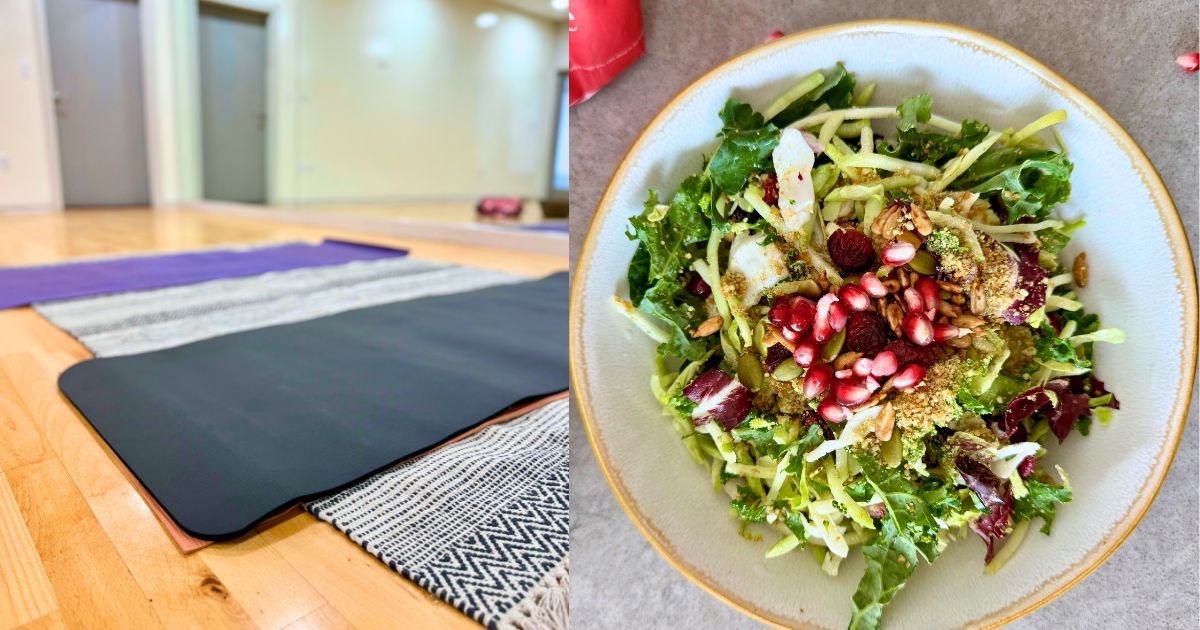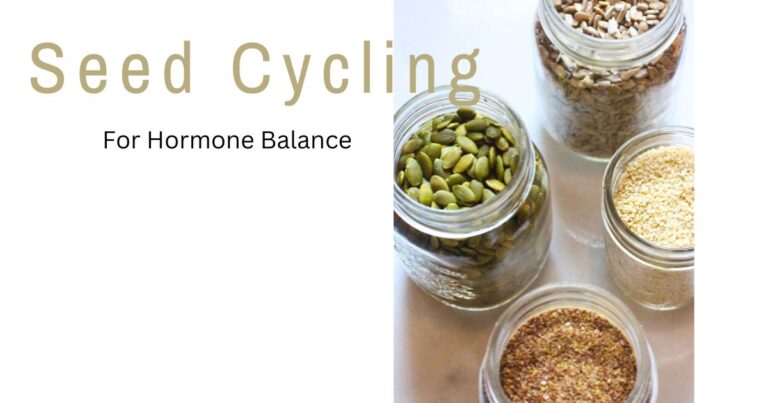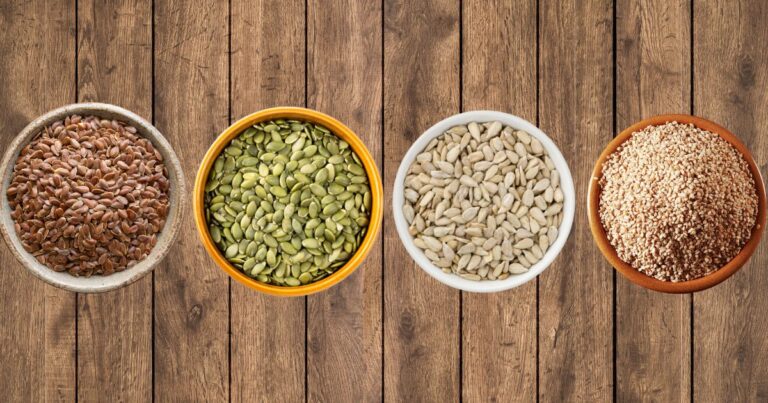How to Balance hormones in your 30s
How to Use Diet to Balance Hormones in Your 30s naturally
Did you know that what we do in our 30’s and 40’s can significantly impact how we age and how we feel in our 50s, 60s, and beyond. So what can we do to balance hormones in our 30s? I’ve been finding that there is a lot of research and suggestions on caring for hormones in our 40s and 50s, when perimenopause and menopause are usually taking place. But what about in our 30s? It is a tricky time, as we are carrying babies and nursing babies, and most supplements suggested for hormones are not recommended for pregnant and/or nursing mamas!
Keep in mind that perimenopause actually starts at age 35!
I’ve researched and found a few things to consider in our 30s that could help us transition into perimenopause and menopause later and, in general, thrive and feel better in our 30s.
We can be mindful of dietary choices that can contribute to balancing our hormones naturally.

Healthy Fats
Here are three tips to ensure you get adequate healthy fats in your diet:
- Eat lots of omega-3 fats- these are the healthy fats listed in the list on the left below.
- Avoid processed oils- switch out vegetable oils for olive oil, coconut oil, or avocado oil. Although it’s a bit more expensive, it’s much healthier on your body to only use these oils in your food.
- Choose grass-fed and pasture-raised versions of your meats
Healthy Fats
- Avocados
- Avocado oil
- Chia seeds
- Coconut milk
- Coconut oil
- Cod liver oil
- Palm oil (unrefined)
- Fish Oil
- Duck fat
- Hazelnuts
- Hemp Seeds
- MCT oil
- Olives
- Olive Oil
- Pecans
- Pumpkin Seeds
- Salmon
- Sardines
- Shellfish
- Sesame seeds
- Tallow (grass-fed)
- Walnuts
Fats to Avoid
- Butter
- Ghee
- Meat from conventionally raised animals
- Peanuts
- Trans fats (hydrogenated oils that used to be found in most fried, processed, and packaged foods)
- Vegetable oils: Corn oil, cottonseed oil, canola oil, safflower oil, soybean oil, sunflower oil
Adequate Protein
Protein is so important. It is essential for the growth and repair of our cells, so it is crucial in repairing our joints, skin, hair, and nails while also helping balance our blood sugar. It is also needed for enzyme and hormone production, detoxification, and our sympathetic nervous system (fight-or-flight) response. (1)
How much protein do I need?
Here is a reasonable estimate:
| Body Weight | Daily Protein |
| 100 lbs | 45- 100 grams |
| 150 lbs | 68-150 grams |
| 200 lbs | 91-200 grams |
Choosing a protein powder
Choose a protein powder that doesn’t contain soy, dairy, grains, and artificial fillers. These have been shown to contribute to inflammation and overall burden to the adrenals, says Dr. Izabella Wentz, author of the Adrenal Transformation Protocol. (1) She goes on to recommend beef protein as the best type of protein tolerated for the adrenals.
Here are her suggestions:
- Gluten-free
- Dair-free
- Soy-free (soy isolate, soy protein)
- Grain Free (rice, oats, corn)
- Free of fillers (thickeners and gums, vegetable oils, dextrins, maltodextrins, added fibers)
- No artificial sweeteners (aspartame, sucralose, Splenda, saccharin).
- No additives, artificial colors, and artificial flavors
- Free of pesticides
- Toxin-free
- GMO-free
- Grass-fed, organic
- Pharmaceutical grade
- Tested by a third-party lab for safety
She found it difficult to find protein powders that meet all of these criteria, so she developed her own. Rootcology protein powders may be a great choice for you.
Nutrients
Vitamin A
Our bodies do not make Vitamin A, so we must get it from our diet. There are two different types of Vitamin A in our diet:
- Preformed vitamin A:
- Beef liver and other organ meats
- Some fish
- Eggs
- Whole milk
- Cheese
- Provitamin A (or precursors to vitamin A): This type of vitamin A is found in foods that will need to convert to the usable form of vitamin A upon consumption.
- This list is comprised of the bright orange and yellow veggies: Yellow peppers, sweet potato, golden beets, oranges, lemons, carrots.
- These contain beta-carotene, which can convert to retinol for the body’s use.
- Other fruits and vegetables with this source of vitamin A include: Spinach, kale, mango, and guava. (2)
The Role of Vitamin A
- The active version of vitamin A, Retinol, is required for cholesterol to become pregnenolone, which is an important hormone needed to make other adrenal hormones.
- Aids in skin protection, mitochondrial health, and reproductive health.
- Regulates the immune system response
- Helps to heal the gut by supporting the intestinal lining
Vitamin C
Vitamin C helps the adrenal glands function appropriately, supports the immune system, collagen production, is a powerful antioxidant, and helps manage free radicals. Foods high in vitamin C include: cherries, yellow peppers, kale, spinach, kiwi, broccoli, brussel sprouts, strawberries, oranges.
B Vitamins
B vitamins (there are 8 that make up the B vitamin complex) aid in cell metabolism, thyroid function, and adrenal function. B vitamins are found in meat, seafood, dairy, leafy greens, sunflower seeds, and poultry.
Iron
Iron helps with better sleep, better energy, and reduced brain fog. Foods that are high in iron include: beef liver, ground beef, turkey, chicken breast, cashews, spinach.
Magnesium
Magnesium is necessary for hundreds of biochemical reactions in the body. (1) It also helps to regulate cortisol and supports healthy levels of DHEA. Foods rich in magnesium include: pumpkin seeds, almonds, spinach, cashews, avocado, chicken breast, beef, broccoli.
Manage Stress
When we are under stress, our bodie’s “fight-or-flight” system kicks in and produces cortisol. With prolonged production of cortisol, there is a lowered production of estrogen and progesterone, contributing to a hormonal imbalance. Managing stress is an important aspect of hormone balance.
Optimize Gut Health
Gut supporting foods can help lower inflammation, promote healthy gut microbiome, and strengthen the gut wall.
- Fermented foods
- Bone Broth
- Fiber (from fruits and vegetables)
Manage Blood Sugar
Blood sugar, also called glucose, helps to provide nutrients to the organs, muscles, and nervous system (1). Eating lots of carbohydrates can cause the body to become insulin resistant. The adrenals are then trying to restore a good equilibrium. If the adrenal glands become overworked (stressed) they release cortisol. Having stable blood sugar can protect the adrenal glands from overworking (1).
regular Exercise
We all have heard this, but regular exercise really is beneficial! Now you know it is also beneficial for hormone balance. Regular exercise helps to balance hormones by managing stress, optimizing gut microbiome, and much more. Remember, what you do in your 30’s will optimize your health in your 50’s and beyond!
Recommended resources for hormone balancing
- Adrenal Transformation Protocol Book
- I really loved this book because it gives so much information on dietary options in helping balance hormones
- The Hormone Fix by Dr. Anna Cabeca
- This is a great book for perimenopause and menopause phases
- She also coaches on a hormone reset protocol in this book.
- Dr. Anna Cabeca has a lot of great supplements for the post pregnancies and breastfeeding stage of life
- Balancing Hormones Naturally Podcast by Leah Breuggmann
- I love her show and I learn a lot from here and her guests on the podcast.
- Hormone Balance by Miss Harmony also seems like a great resource, but I haven’t read this one myself yet. Will Plan on it now!
Other posts on hormone balance:
Medical disclaimer
This blog post is for informational purposes only and is not intended to serve as a substitute for professional medical advice, diagnosis, or treatment. Always seek the advice of your physician or other qualified health provider with any questions you may have regarding a medical condition or treatment options.
Do not disregard professional medical advice or delay seeking it because of something you have read in this post. If you are experiencing a medical emergency, call your doctor or emergency services immediately.
The exercises, techniques, and tips discussed in this blog are general recommendations and may not be suitable for all individuals. Consult your healthcare provider or a licensed physical therapist to determine the best course of action for your specific needs and condition.
By using this information, you acknowledge that the authors and publisher are not responsible for any adverse effects or consequences resulting from the use or application of the information provided.
References
- Adrenal Transformation Protocol Book
- Atli Arnarson BSc, PhD. 20 Foods High in Vitamin A. Healthline. Published April 19, 2017. Accessed August 18, 2024. https://www.healthline.com/nutrition/foods-high-in-vitamin-a




